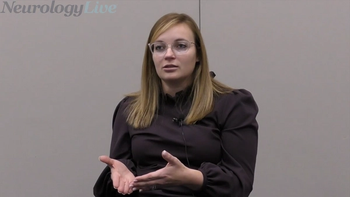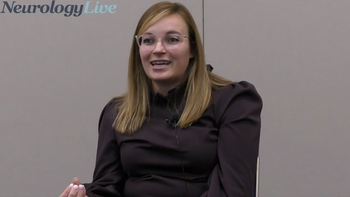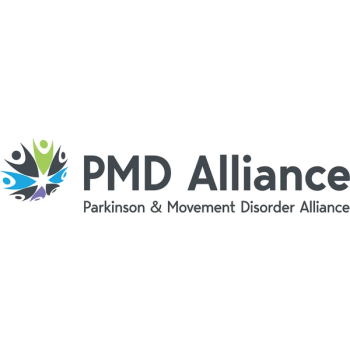
The submission to the FDA is supported by interim data from the RAINBOWFISH trial (NCT03779334), as all 5 babies treated with risdiplam maintained the ability to swallow and feed exclusively orally after 12 months.

The submission to the FDA is supported by interim data from the RAINBOWFISH trial (NCT03779334), as all 5 babies treated with risdiplam maintained the ability to swallow and feed exclusively orally after 12 months.


Investigators developed a weighted logistic regression-based sleep-wake scoring method for actigraphy data, concluding that it aided in assessing sleep in CP.

The director of the Pediatric Headache Program at CHOP spoke on the challenges associated with clinical trials in pediatric migraine, further discussing the biggest advance made amid the COVID-19 pandemic. [WATCH TIME: 6 minutes]

Approximately 300 patients across 30 clinical centers will be included in the 36-week study evaluating the efficacy and safety of sodium oligomannate (GV-971), a medication currently approved for Alzheimer disease in China.

The research director and staff scientist at Cleveland Clinic’s Epilepsy Center detailed the clinical pre- and post-surgery benefits patients with epilepsy get from MR fingerprinting. [WATCH TIME: 3 minutes]

Device-related adverse events were reported in less than 1% of the safety analysis population, which included more than 100,000 patients with migraine who were treated with Nerivio.

The FDA accepted the new drug application for priority review, setting a PDUFA action date of May 12, 2022.

Patients on the study drug demonstrated improvements in several different exploratory cardiac end points, including NT-proBNP and echocardiographic parameters relative to placebo.

The staff epileptologist at Cleveland Clinic’s Epilepsy Center discussed new untapped ways seizure apps could help patients with epilepsy. [WATCH TIME: 2 minutes]

The senior VP of clinical research and deputy chief clinical officer of the neurology business group at Eisai spoke to the recent first enrollment in the Tau NexGen study of the investigational antimicrotubule binding region tau antibody, E2814.

The cognitive neurologist at the University of California San Francisco provided insight on how she’s taken a cognitive neurology approach to the COVID-19 pandemic, and how her background in HIV influenced her recent research. [WATCH TIME: 5 minutes]

Here's what is coming soon to NeurologyLive®.

The clinical hold comes 2 days after an announcement from Denali Therapeutics detailing a partnership with Takeda Pharmaceutical Company to codevelop and cocommercialize the treatment.

The trial will also include another investiartional Eisai agent, the antiamyloid therapy lecanemab, as the background study drug to evaluate the true effect of E2814 has on patients with dominantly inherited Alzheimer disease.

The director of the Pediatric Headache Program at CHOP commented on the need to treat migraine early to avoid secondary effects and decrease the odds of long-term disability. [WATCH TIME: 3 minutes]

In a Health Union survey of more than 400 patients, those with focal seizures were more likely to say they’ve experienced discrimination, isolation, and reduced productivity at work compared with those without.

Years of mounting data has led the National Headache Foundation to release recommendations on how patients and clinicians come to the right decisions on migraine therapy.

Dubbed COVID-DoC, the prospective study is the largest of its kind to date and provides initial data on the prognosis and pathophysiology of the condition in a group of patients at Massachusetts General Hospital.

Take 5 minutes to catch up on NeurologyLive®'s highlights from the week ending January 21, 2022.

Discussing the need to identify an effective first-line treatment, the director of the Pediatric Headache Program at CHOP further discussed treatment adherence in this patient population. [WATCH TIME: 5 minutes]

The risk of 5-year ipsilateral recurrent stroke was 14.3% for those with Symptomatic Carotid Atheroma Inflammation Lumen-Stenosis scores of at least 3 compared with 2.6% for those with low-risk category scores.

The staff epileptologist at Cleveland Clinic’s Epilepsy Center gave her expert opinion on whether seizure app usage has increased during the COVID-19 pandemic and why there remains a need for further data collections. [WATCH TIME: 2 minutes]

Hypoperfusion index was able to estimate the rate of core progression in patients with stroke who had otherwise unclassified progression by reperfusion trial core time criteria.

The study of 251 hospitalized patients with COVID-19 found that biomarkers were elevated to levels that were similar to—or even higher than—those observed in patients with Alzheimer disease.

After a post hoc analysis revealed promising results in a subgroup of younger adults with less disease burden, Ionis has announced that Roche will develop a new phase 2 trial.

The director of the Pediatric Headache Program at CHOP commented on the available therapies for children with migraine, as well as future developments. [WATCH TIME: 4 minutes]

The director of the Pediatric Headache Program at CHOP broke down the treatment of pediatric migraine into 3 different pieces: lifestyle habits, acute treatment, and preventive therapies. [WATCH TIME: 5 minutes]

Yumanity Therapeutics announced the hold, which was in response to an investigational new drug application submitted to the FDA in December 2021.
